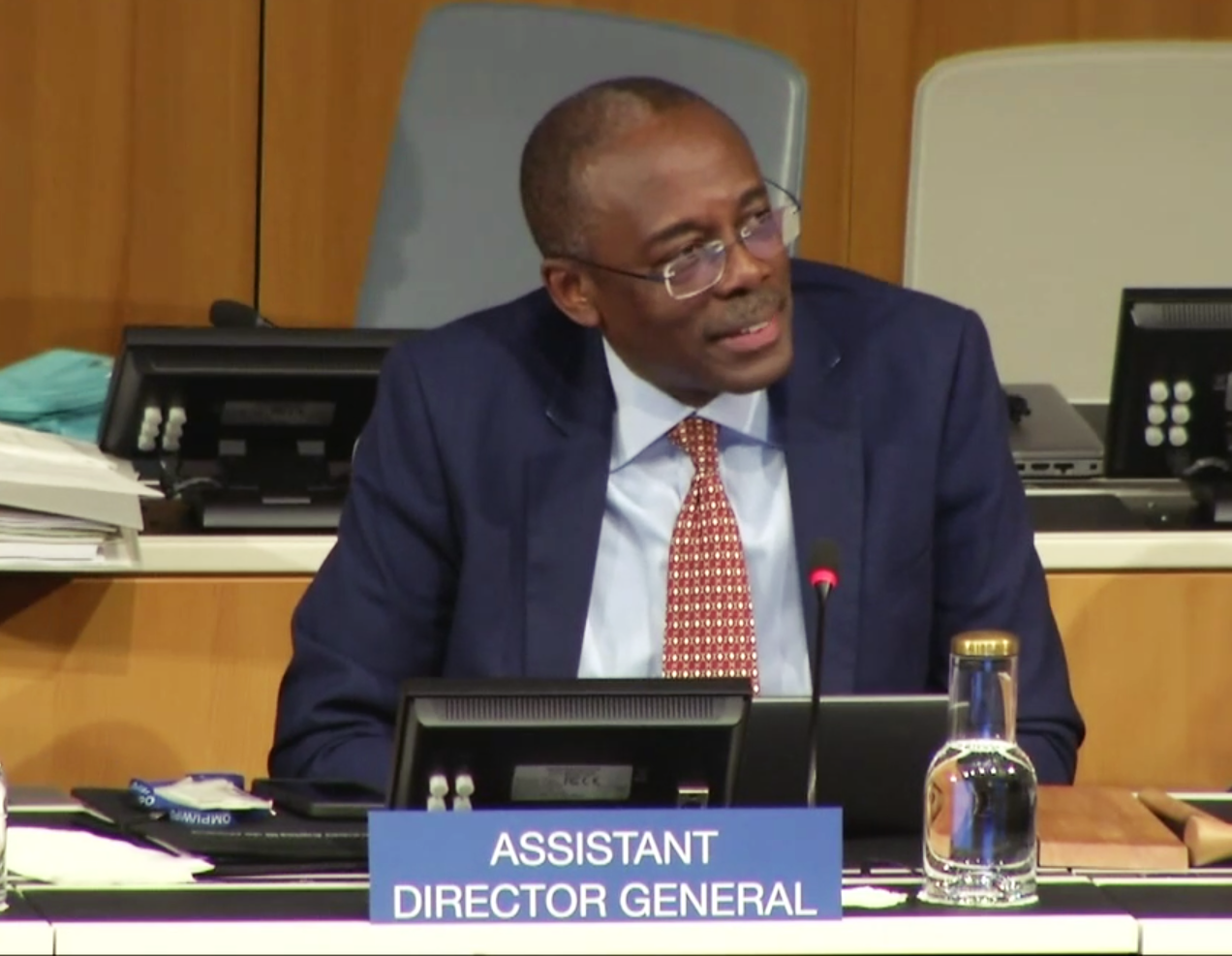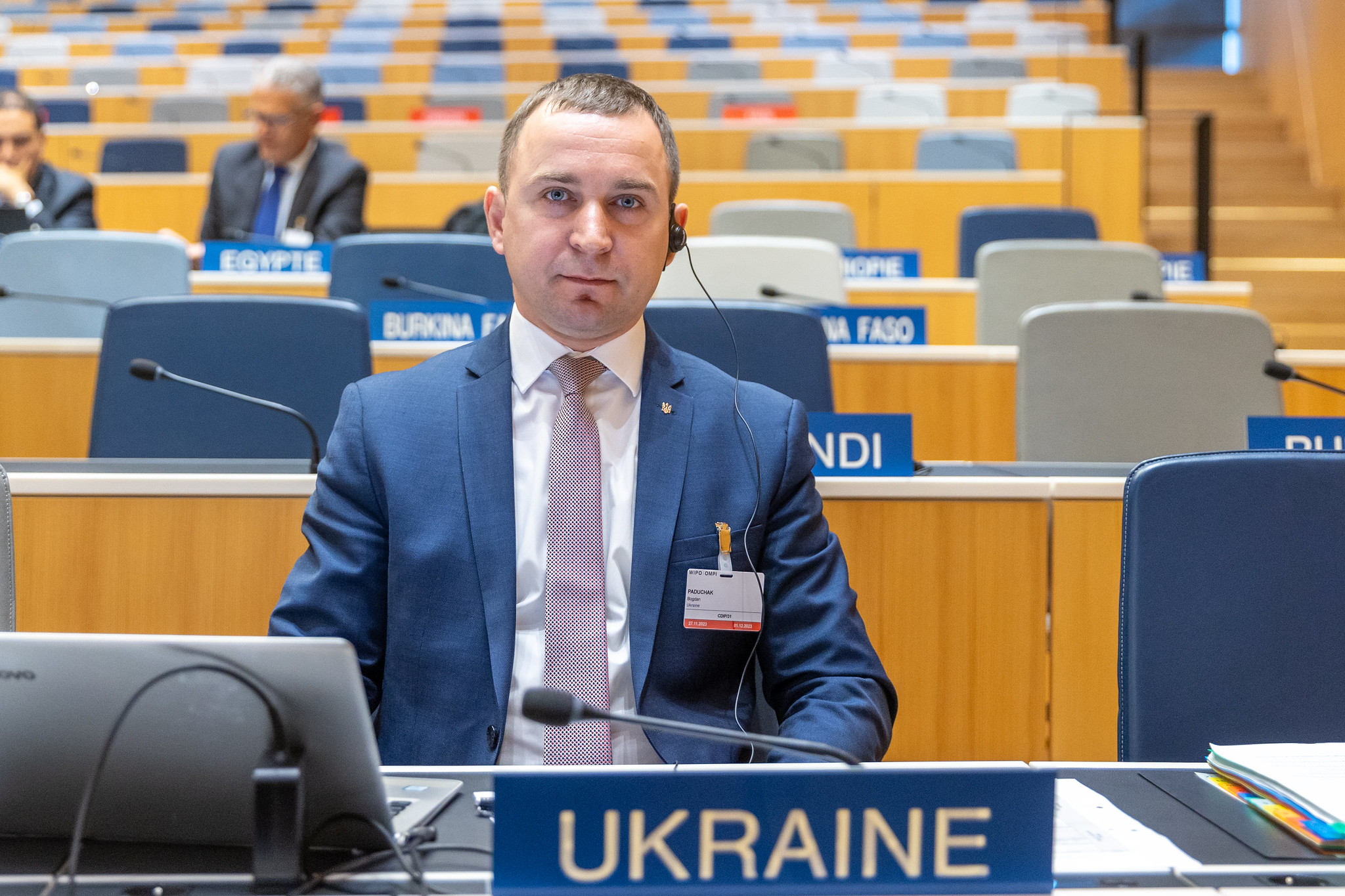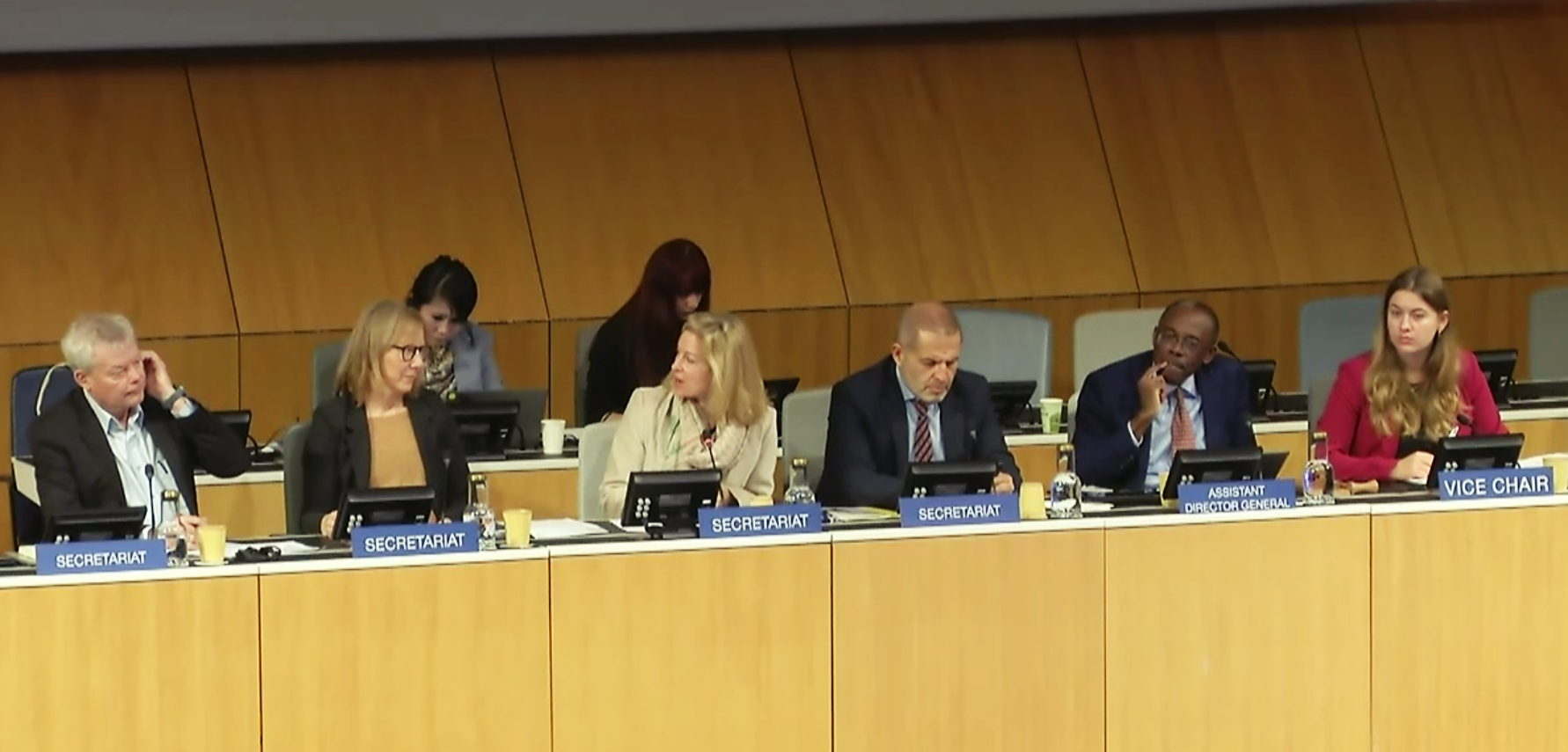The work of the WIPO Member States during the 31st session of the Committee on Development and Intellectual Property (CDIP) has ended.
The participants of the meeting considered work programs for the implementation of the adopted recommendations under the WIPO Development Agenda, in particular, reports on the projects’ implementation progress:
- from Philippines – “IP and innovation collaboration as a foundation for technology transfer and bringing research output to market”;
- from India – “Intellectual property and unlocking the potential of non-agricultural geographical indications for the empowerment of local communities and preservation of revival of local arts and traditions”;
- and from Brazil – “Distribution of content in the digital environment”.
The Ukrainian delegation, heade by the IP Office’s First Deputy Director, Mr Bohdan Paduchak, focused on keeping the issue of the impact of russia’s aggressive war against Ukraine among all items on the Committee’s current and future agenda.
Preparation for the International Conference on Intellectual Property and Development
During the 29th session, the CDIP decided to convene three consecutive International Conferences on IP and Development starting in 2025. The organisation of such conferences is a permanent practice of WIPO, during which the knowledge and experience of stakeholders from all over the world are consolidated. Such events have become a platform for forming a common understanding of current IP issues, developing strategies for maximising the global IP system's benefits and engaging international institutions’ efforts to overcome global challenges.
Edward Kwakwa, Assistant Director General at the WIPO
The subject of active discussion during the 31st CDIP’s session was the discussion of proposed sub-topics for the next International Conference on Intellectual Property and Development in 2025. The Ukrainian delegation supported, in particular, the following topics:
- Group B Member States’ proposals: “Vertical technology transfer for higher education institutions and industry”, “Education and IP trainings at schools and universities, IP raising awareness among children and youth ”, “IP and financing for SMEs”;
The delegation of Ukraine supported the proposals of Group B, in particular, regarding IPRs awareness raising initiatives among children and youth as this topic correlates with the content of the Ukrainian’s delegation statement during the previous meeting of the Committee. Mr Paduchak, the IP Office’s First Deputy Director, emphasised he following in his statement:“Ukraine urgently needs to strengthen its innovation potential, focusing on expanding young people participation in the national innovation system, supporting them in more effective use of the IP system to protect and commercialise their intellectual property rights. With the support of WIPO, our national IP Academy is already actively working with the younger generation - from elementary school students to university students. We believe it is crucial to develop IP culture and knowledge from childhood”.
Bohdan Paduchak, the IP Office’s First Deputy Director
Photo: WIPO
- “IP and creative minds - understanding the future of creativity through IP”, proposed by the distinguished delegation of Poland;
- “IP and innovation in the conditions of natural disasters", "IP and education", and "IP in the digital world", proposed by the distinguished delegation of Slovenia;
The Ukrainian delegation emphasised that the topic of IP and innovation in the face of natural disasters “is of particular interest to Ukraine, which recently suffered from the war crime of ecocide due to Russia's detonation of the Kakhovka hydroelectric plant as a result of which damage to the environment of Ukraine in the amount of 14 billion US dollars was caused. Four hundred ninety-five thousand hectares, including ten national natural parks, eight reserves, and two biosphere reserves, remain under Russian occupation. Almost a third of Ukrainian forests are damaged. Six hundred animal species have been affected, and 80 animal species are on the verge of extinction. Encouraging innovation through the IP system to solve such problems not only contributes to developing innovation infrastructure but also directly helps save human lives”.
- “The role of IP in stimulating innovation using AI for sustainable development”, proposed by the distinguished delegation of Great Britain;
During the discussion of this subtopic, the Ukrainian delegation shared its national experience.
“Recently, the government of Ukraine presented a road map for the legislative regulation within the field of artificial intelligence in Ukraine, which will be implemented in two stages, at least until 2027. With the new version of the Copyright Law that came into force earlier this year, we also covered the issue of rights to non-original objects generated by computer programs, including artificial intelligence. Such works can now be protected by a special ‘sui generis’ law”, Bohdan Paduchak noted.
The African Group’s proposal, “The Role of Intellectual Property and Innovation in addressing global public health challenges fostering Technology Transfer and Cooperation”, was chosen based on the discussion results.
Future development projects of the WIPO CDIP
Topics for the subsequent CDIP work sessions were also defined within the agenda item “Intellectual property and development”, particularly:
- “Building the capacity of universities to manage and commercialise intellectual property: transferring intellectual property and technology”, proposed by the African Group for the thirty-third CDIP session (December 2024);
- “AI Impacts for IP and Development”, proposed by distinguished delegations of Brazil and the United Kingdom ;
- “Intellectual Property and the Judiciary: Building Capacities and Expertise', proposed by Group B for the thirty-fourth session of the CDIP (April 2025).
The last topic is particularly relevant and urgent for Ukraine, in view of the harmonisation of national legislation with EU acquis and the sphere of IP judicial proceedings.
In his statement< Bohdan Paduchak emphasised:
“Ukraine is actively developing the system of IPRs protection, particularly preparing for the launch of the High Court on Intellectual Property. Our dedication to sharing best practices and capacity building in IP and the judiciary underlines our commitment to ensuring the sustainability of IP assets for economic development. On November 14, 2023, WIPO signed two Memorandums of Understanding with the Ukrainian Supreme Court. The purpose of these Memorandums is to promote cooperation and joint activities, including developing targeted programs for building the potential of the judicial system of Ukraine and disseminating leading Ukrainian court decisions in the field of IP through the WIPO Lex-Judgments database”.
Intellectual property as a tool for addressing climate change and achieving carbon neutralityThe attention of the international IP community was focused on the role of IP addressing climate change, a balanced approach to the use of natural resources and new technologies. In this regard, the Ukrainian delegation emphasised the irreversible destructive consequences of the war for the ecosystem and its sustainability.
“Ukraine is a country of ecological luxury: 35% of Europe’s biodiversity is concentrated here. But now, russian aggression against Ukraine has already caused more than 55.6 billion Euros in environmental damage, and 252 cases of environmental war crimes have been recorded. Ukraine is one of the most mined countries in the world; about a third of its territory remains potentially dangerous due to Russian mines and unexploded ordnance. The World Bank estimates the full range of humanitarian demining works will cost 37.4 billion US dollars. Still, the use of new technologies can significantly reduce these costs”, – emphasized Ukrainian delegation representatives.
A significant part of the discussion by the WIPO secretariat was devoted to the WIPO Green platform and digital tools to stimulate green innovation.
The Ukrainian delegation called on WIPO member states to take into account the environmental of the war,to unequivocally condemn russia’s aggressive war and its violation of international law, including the UN Charter, in the most assertive possible manner.
08 December 2023


